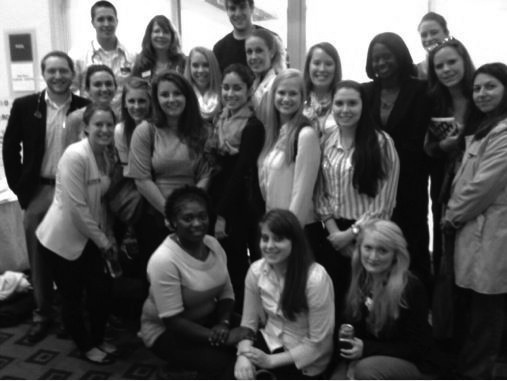

Photo Credit / Marjeta Lapinski
BY MARJETA LAPINSKI
SC Contributing Writer
Nursing school—it extends far beyond correctly taking a blood pressure test, learning how to properly give injections to patients, or even learning about the pathophysiology of a wide array of various diseases.
A large part of nursing involves assessing a person’s mental or cognitive functioning, which is essentially determining the functioning level of an individual, their coping skills in managing issues that have occurred throughout their lifetime, and how it continues to affect them.
Senior nursing students have taken their skills to the next level and will continue to do so as the year progresses.
As a part of our Psychiatric Nursing clinical rotation, it was required of us to reach out and help those who have psychiatric issues—whether it was in the psychiatric unit of the hospital or to people within the community.
Not only did we spend ten weeks on a psychiatric unit at the hospital attending, participating, and leading group therapies where we spoke with, helped, and read about patients with psychiatric issues, but we have also engaged in numerous outside activities to help and learn more about the psychiatric and mental health community. It has been an eye-opening and educational experience.
Some of the outside activities that senior nursing students have engaged in include collecting clothes and delivering them to psychiatric patients in the hospital who do not have the means to buy some themselves, volunteering in soup kitchens, making posters and boards promoting healthy behaviors in the psychiatric population, and providing information to the campus community concerning mental health awareness and suicide awareness.
These activities have allowed us to broaden our scope of learning in nursing and to share the information that we have learned with the rest of the community.
These activities were completed in addition to other nursing courses and clinical that we took at the same time.
Not only have senior nursing students undergone rigorous nursing courses throughout the past three-and-a-half years, but the four-year program will culminate in a five-week internship at the end of the year.
The internship is spent with a nurse full-time on a unit within the hospital. This internship will help transition students to life after nursing school and give them a reality-based experience of what to expect after our commencement in May.
The last five weeks of the year will ensure optimal learning in the hospital environment in which we will be working after we graduate.
Email Marjeta at:
mkl7345@live.esu.edu
